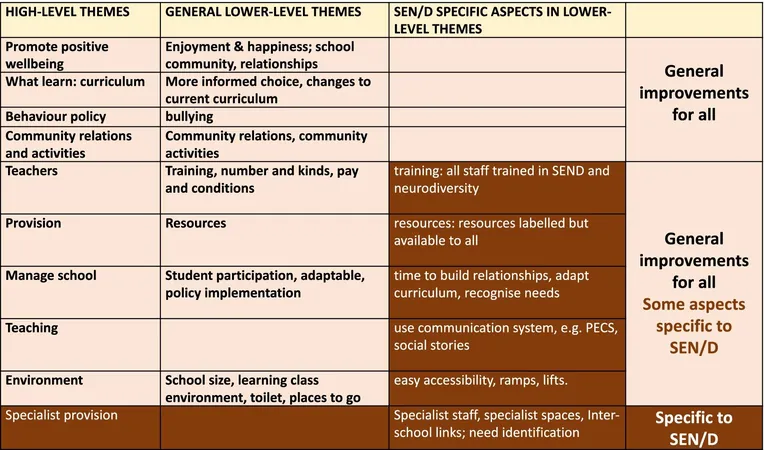
Citizens' Panels Empower Young People with Special Needs to Shape Educational Policies
2024-09-26
In an innovative approach to education, a groundbreaking study has revealed that citizens' panels can significantly empower young individuals with special educational needs and disabilities (SEN/D) by enabling them to propose transformative policy ideas for school inclusion. This research, recently published in the journal *Frontiers in Education*, marks the first study to explore how public dialogue processes, such as citizens' assemblies and juries, can be adapted to ensure the active involvement of marginalized youth in discussions about policies that impact their lives.
The project kicked off by collaborating with six young people with SEN/D, alongside their parents and caregivers, to design a citizens' panel that would be inclusive and productive. The panel ultimately consisted of 28 participants: the six young individuals, four peers without special needs, 13 parents/caregivers, and five education professionals, all contributing to a rich dialogue on making schools more inclusive.
Professor Brahm Norwich from the University of Exeter, who co-led the project, stated, "This initiative has proven that young people with SEN/D can not only participate but also contribute impactful ideas for educational reform. The citizens' panel has shown a promising avenue for developing inclusive policy solutions that could reshape the education landscape."
The timing of these findings aligns with the new Labour government's intention to leverage public dialogue in political engagement and reform efforts, particularly with a focus on improving inclusion in school inspections. The research spanned the 2022/2023 academic year and involved participants from Hampshire, coordinated by public dialogue specialists Involve and the Sortition Foundation.
Participants focused on redefining the purpose of schools, emphasizing the importance of personal and social skills over mere academic achievement. They identified the need for improved physical spaces within schools, advocating for quieter areas for easier navigation, as well as suggesting modifications to canteen layouts and learning tools. Moreover, they highlighted the necessity of addressing teachers' training and well-being as foundational to fostering an inclusive environment.
A crucial finding was the consensus that ability grouping was detrimental and stigmatizing, leading to compromised learning opportunities for those with SEN/D. Instead, participants recommended flexible groupings that allow individuals to self-select their learning levels, minimizing the risk of drawing attention to their differences.
Dr. Rob Webster from the University of Greenwich, who also co-led the project, emphasized that the citizens' panel proved effective at fostering meaningful participation from young people with SEN/D. "Participants expressed this experience as rewarding and positive, providing a safe platform for open dialogue where they felt comfortable sharing their thoughts and respecting differing opinions," he noted.
Participants appreciated the rare opportunity to connect with diverse peers, fostering empathy and enriching their understanding of various perspectives—elements essential for developing a well-rounded approach to education and social interaction.
As this innovative concept of citizens' panels gains traction, it holds the potential not only to reshape educational policies but also to enhance democratic engagement among young people, preparing them for future participation in civic life. The message is clear: when young voices are heard and valued, the possibility for a more inclusive and supportive educational environment becomes a reality.


 Brasil (PT)
Brasil (PT)
 Canada (EN)
Canada (EN)
 Chile (ES)
Chile (ES)
 España (ES)
España (ES)
 France (FR)
France (FR)
 Hong Kong (EN)
Hong Kong (EN)
 Italia (IT)
Italia (IT)
 日本 (JA)
日本 (JA)
 Magyarország (HU)
Magyarország (HU)
 Norge (NO)
Norge (NO)
 Polska (PL)
Polska (PL)
 Schweiz (DE)
Schweiz (DE)
 Singapore (EN)
Singapore (EN)
 Sverige (SV)
Sverige (SV)
 Suomi (FI)
Suomi (FI)
 Türkiye (TR)
Türkiye (TR)